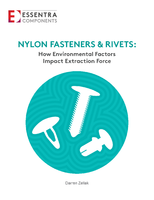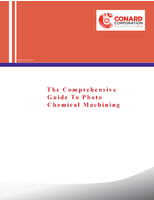Software Eliminates Capital Investment Costs in Global Integration
Share:

With Australian resource companies and their supply chain expanding into international markets, a new challenge for operators is to find ways to maximise profits in all types of economies and cultures.
Software provides the only vehicle to integrate operations across all borders, so a huge collection of seemingly disparate components of a multinational can be pulling in the same direction without any major capital investment.
Software specialist, JDA Australia, the local arm of the global JDA Software, is adamant Australian companies supplying the resource sector must echo the action taken by counterparts in Europe and North America if they are to maximise returns.
An example of how such a potential dilemma can be avoided and turned into a positive is exemplified by a Germany based company, HeidelbergCement AG. HeidelbergCement AG is the global market leader in aggregates and a prominent player in the fields of cement, ready-mixed concrete and other downstream activities, making it one of the world's largest manufacturers of building materials.
Business Challenge
HeidelbergCement needed to make more intelligent, more informed decisions about its supply chain investments in more than 40 countries. The company needed to understand where local demand existed, and how to meet that demand in the most profitable manner by making sound strategic investments.
JDA in Europe stepped in with its JDA® Supply Chain Strategist software product. The benefits of integrating this technology are that HeidelbergCement:
o Avoided millions of Euros in new capital investments
o Increased flexibility by serving demand through existing plants
o Reduced transportation costs by better matching supply and demand
HeidelbergCement operates a complex, geographically dispersed supply chain that serves the global building materials marketplace. By using JDA® Supply Chain Strategist to model supply, demand and capacity across this sophisticated network, HeidelbergCement is able to make intelligent decisions that match shifting customer demand with available regional capacity.
As a result, the company has been able to analyse such decisions as the construction of new plants, acquisitions and other investments in a more strategic manner, considering if the routes selected are the most profitable ones to satisfy changing customer demand.
"With JDA Supply Chain Strategist, we can basically make much more informed decisions. It gives us much better insight into the behaviour of our supply network, and enables us to allocate real values to different investment options," said Henrik Lenart, strategy analyst logistics at HeidelbergCement.
Why JDA?
HeidelbergCement was managing its global supply network with an in-house system that was limited in its ability to help executives make critical decisions about building new plants and making other strategic investments. The company realised that it needed a more sophisticated tool - one that could gather and analyse up-to-date information from its worldwide operations - to aid in making top-level strategic choices.
"We looked at several different solutions that promised intelligent decision support, and it became apparent early in the process that JDA Supply Chain Strategist was the best solution available," said Lenart.
Cement manufacturing is a complex process, and one of HeidlebergCement's primary concerns was whether any supply chain solution could manage this complexity across a global network.
"We ran a pilot program to see if JDA Supply Chain Strategist could really model our business, and found that the tool had the capability to manage our production flows and optimize them. So it was an easy decision to choose JDA."
HeidelbergCement began by implementing JDA Supply Chain Strategist in parts of its German cement business, then sequentially implemented the tool at its cement manufacturing facilities in other countries. The company is currently implementing JDA Supply Chain Strategist in its global aggregates business as well.
JDA's Contribution
JDA Supply Chain Strategist is helping HeidelbergCement to make more informed business decisions in a number of important areas.
"A very good example of how we are using JDA Supply Chain Strategist occurred in 2007," said Lenart. "We did a study of whether we should build a new green field plant in order to serve growing customer demand.
"We modelled three of our existing plants in that region, then added the new plant to the model. The JDA model actually suggested that we sequentially upgrade the capacity of our existing plants, instead of investing in the new facility - a decision which saved us about $200 million Euros ($280 million US)."
In addition to short-term cash benefits, this decision also had a longer-term strategic impact. "When the credit crisis came and the markets were down, we were much more flexible in reacting."
"We could just stop the capacity increase in the existing plants, whereas having a new plant would not be that easy to control," noted Lenart.
JDA Supply Chain Strategist has also helped HeidelbergCement to assess other potential investments such as strategic acquisitions.
"Recently JDA Supply Chain Strategist helped us to realise that a potential acquisition target would mean millions of Euros in cost-saving synergies," said Lenart. "With JDA, it basically all comes down to cost savings."
HeidelbergCement's Results
For the first time, this JDA solution has created global visibility across HeidlebergCement's geographically distributed operations.
"We have facilities in more than 40 countries, with about 100 million tons of cement capacity," said Lenart. "JDA Supply Chain Strategist is enabling us to bring our various facilities together and get a more global view of the whole network, instead of focusing on profit and loss for each country or region. It is helping us to make decisions based on the greater good of the company, not on the isolated profitability of one part of the business."
In contrast with its previous in-house supply chain solution, JDA Supply Chain Strategist is able to collect up-to-date information from across HeidelbergCement's worldwide operations.
"Obviously there is a lot of data collection work that has to be done, but we are happy that we finally have a means to gather our data in one place," said Lenart.
"Without JDA, we would not be able to put all of our relevant data into one supply chain model. And we see now that it is absolutely necessary to make sound decisions."
According to Lenart, JDA has helped to create a real competitive edge for HeidelbergCement in the global building materials industry. "We have an advantage because we are able to allocate our capacity wherever it is needed to meet demand," said Lenart. "Having a better grip on demand, and where that demand is located, allows us to intelligently allocate capacity.
"We can avoid unnecessary capital investments, and we also have much lower transportation costs and distances, because we can strategically match available supply with demand. This provides a significant cost advantage over our competitors."
For more information, please contact Ms Emma Hose.
JDA: Level 3/ 409 St Kilda Rd, Melbourne VIC 3000
Tel: 0401 149 735, email: Emma.Hose@jda.com
web: www.jda.com




